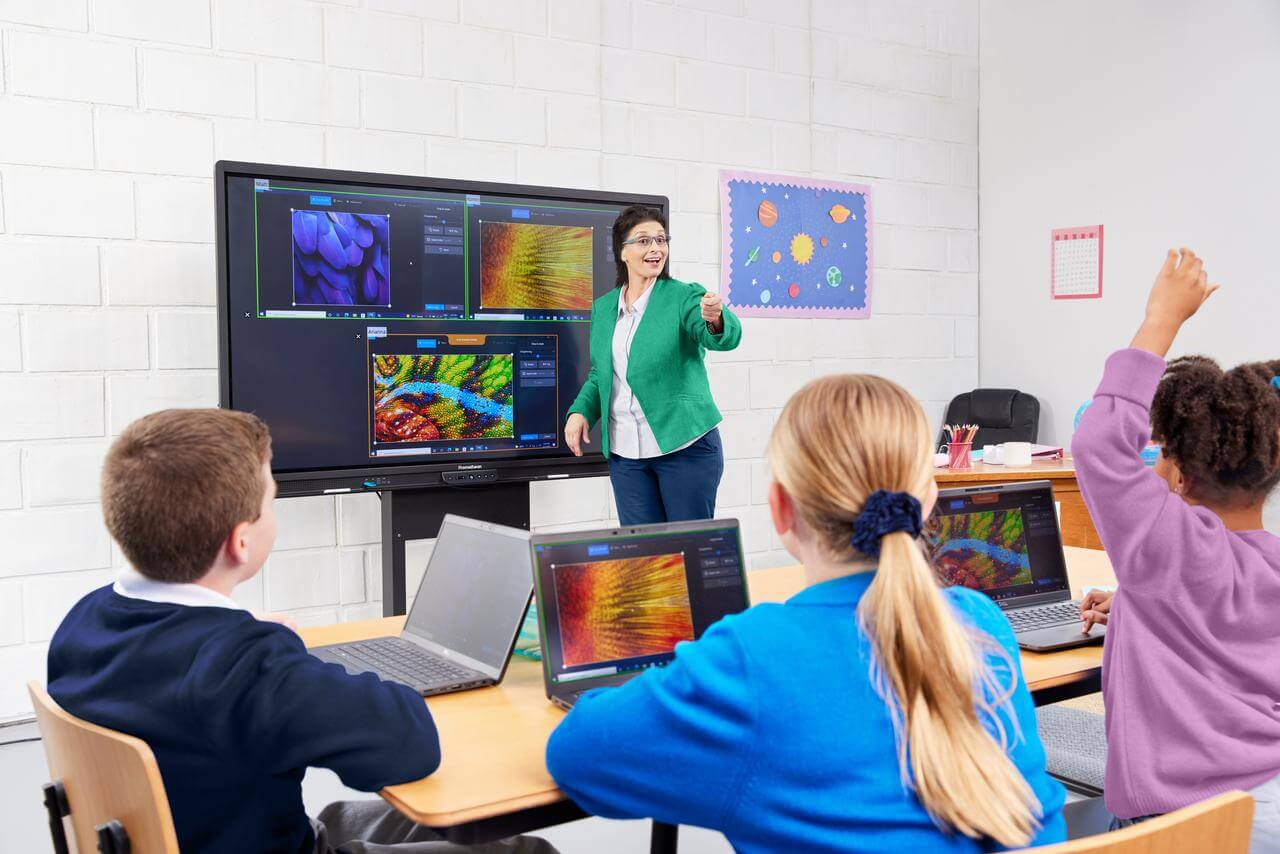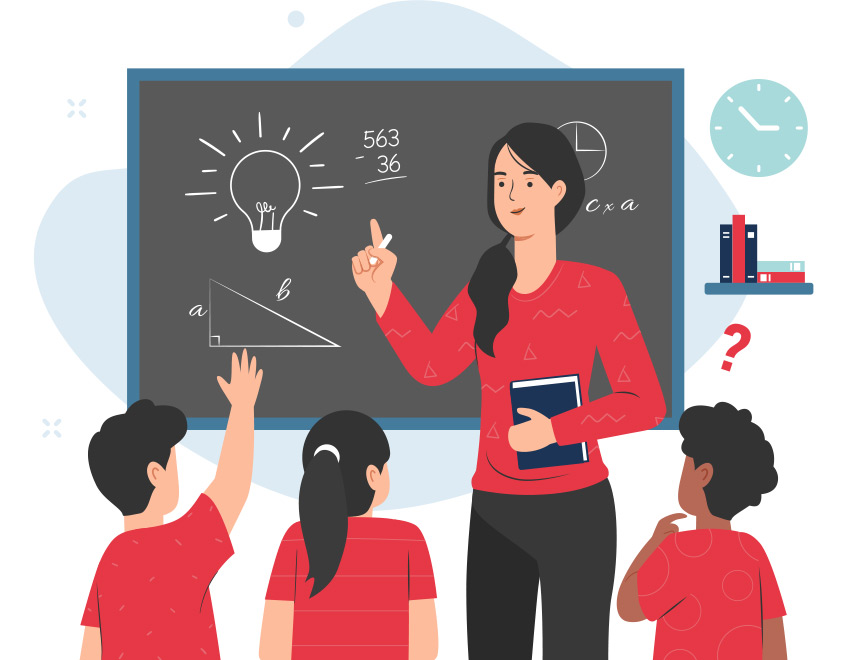Discovering the Various Mentor Techniques in Key Scientific Research Education Today
Inquiry-based knowing, hands-on experiments, and the assimilation of innovation are redefining how instructors engage young minds. Additionally, joint techniques and set apart direction are being utilized to provide to the varied needs of pupils, improving both interaction and understanding.
Inquiry-Based Learning
Inquiry-Based Learning (IBL) is an instructional method that encourages pupils to check out clinical concepts with wondering about, examination, and hands-on testing. This technique emphasizes the role of trainees as energetic individuals in their understanding, promoting essential reasoning and problem-solving skills. By involving with real-world inquiries, pupils become motivated and interested, which enhances their understanding of clinical principles.
In IBL, educators act as facilitators, directing pupils as they browse their questions as opposed to providing information directly. This student-centered technique permits differentiation, suiting different finding out paces and styles. Students develop abilities in creating theories, designing experiments, and examining data, which are crucial for scientific literacy.
Additionally, IBL fosters cooperation amongst pupils, motivating them to share ideas and findings. This collective questions promotes social abilities and a sense of area within the class. The procedure of questions encourages strength, as trainees find out to welcome failing as a stepping rock towards understanding.
Hands-On Experiments
Hands-on experiments are an essential element of efficient science education, complementing the principles of inquiry-based understanding. These experiments enable trainees to engage directly with clinical principles, fostering a deeper understanding via experiential knowing. By manipulating materials and observing end results, young learners can realize abstract theories in substantial ways.
Such activities advertise vital reasoning and analytical abilities, as students assume outcomes, conduct experiments, and assess results. This process encourages them to ask questions, refine their understanding, and create a scientific way of thinking. Hands-on experiments can be tailored to diverse understanding styles, making sure that all trainees have the possibility to involve meaningfully with the content.
Additionally, hands-on experiments often motivate cooperation among peers, promoting teamwork and communication skills. Operating in groups allows pupils to share ideas, talk about searchings for, and discover from each other, which boosts their general educational experience.
Incorporating hands-on experiments into the key scientific research educational program not only enriches the discovering environment yet likewise grows a lifelong passion in science. By proactively taking part in their education, trainees are most likely to develop a passion for clinical questions that extends past the classroom.

Modern Technology Combination
Integrating modern technology right into key scientific research education and learning has actually ended up being progressively necessary in cultivating trainee interaction and improving discovering outcomes. The use of digital tools, such as interactive simulations, virtual laboratories, and instructional software, provides students with opportunities to explore clinical ideas in cutting-edge means. These resources assist in a much deeper understanding of complex topics by allowing learners to visualize and manipulate variables that would certainly be unwise in a standard class setting.
Furthermore, technology integration encourages personalized try this finding out experiences. Pupils can progress at their very own speed, revisiting tough ideas with multimedia resources, which satisfy different understanding styles. This flexibility not only sustains individual development but also grows a sense of autonomy in students.
In addition, innovation offers as a bridge to real-world science, linking students with existing study and expert payments. Access to clinical journals and on the internet data sources broadens pupils' viewpoints on scientific query and cultivates crucial assuming skills.
Collaborative Knowing
Collaborative understanding plays a vital role in primary scientific research education and learning by promoting teamwork and interaction skills amongst students. This strategy motivates learners to work with each other, share expertise, and participate in analytical, which enhances their understanding of clinical principles. By joining team tasks, pupils discover to articulate their ideas, listen to diverse perspectives, and bargain solutions, every one of which are important skills in try these out both real-world and scholastic contexts.

Study suggests that joint understanding can bring about enhanced motivation and interaction in science topics, as students find satisfaction in common experiences (primary science tuition Singapore). In addition, this strategy prepares students for future collaborative endeavors, outfitting them with the abilities necessary for efficient synergy in college and professional atmospheres. Inevitably, embracing collaborative discovering in primary science education can substantially enhance the knowing experience and promote a deeper understanding of clinical questions
Set Apart Instruction
:max_bytes(150000):strip_icc()/GettyImages-595348697-5b356e9ac9e77c00372d12a8.jpg)
Separated direction can manifest in numerous ways, such as varying the web content, processes, or products of learning. Teachers might make use of tiered assignments that supply differing levels of complexity, enabling trainees to work at their respective preparedness degrees. Additionally, flexible organizing approaches can promote cooperation among trainees with various abilities, promoting peer knowing.
Evaluation plays an essential duty in this technique, as it informs guideline and helps instructors understand each pupil's unique requirements. Formative analyses, such as monitorings click for info and quizzes, can lead educators in readjusting their approaches to improve learning end results. primary science tuition Singapore. Eventually, by executing set apart direction in primary science education, teachers can grow a much more equitable and reliable understanding setting, empowering all students to reach their full capacity in recognizing clinical phenomena
Verdict
In summary, the varied training methods in primary science education, consisting of inquiry-based knowing, hands-on experiments, innovation combination, collaborative understanding, and differentiated guideline, jointly add to a more effective knowing atmosphere. These techniques promote important reasoning, analytic abilities, and a much deeper comprehension of scientific principles. By applying these approaches, educators can produce appealing and helpful class that attend to the diverse demands of students, eventually promoting a long-lasting interest in science and boosting academic accomplishment.
Inquiry-Based Learning (IBL) is an instructional approach that urges students to explore scientific concepts via doubting, examination, and hands-on testing.Collaborative discovering plays a vital function in key scientific research education and learning by fostering teamwork and communication skills among students.Research study shows that collective understanding can lead to enhanced motivation and interaction in scientific research topics, as students find pleasure in common experiences.In fostering an inclusive knowing setting, set apart instruction emerges as an essential approach to accommodate the diverse needs and capabilities of trainees in primary science education. Eventually, by executing distinguished guideline in key science education, educators can cultivate an extra equitable and efficient discovering environment, equipping all pupils to reach their full capacity in comprehending clinical phenomena.